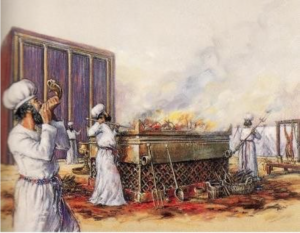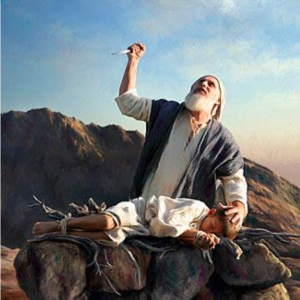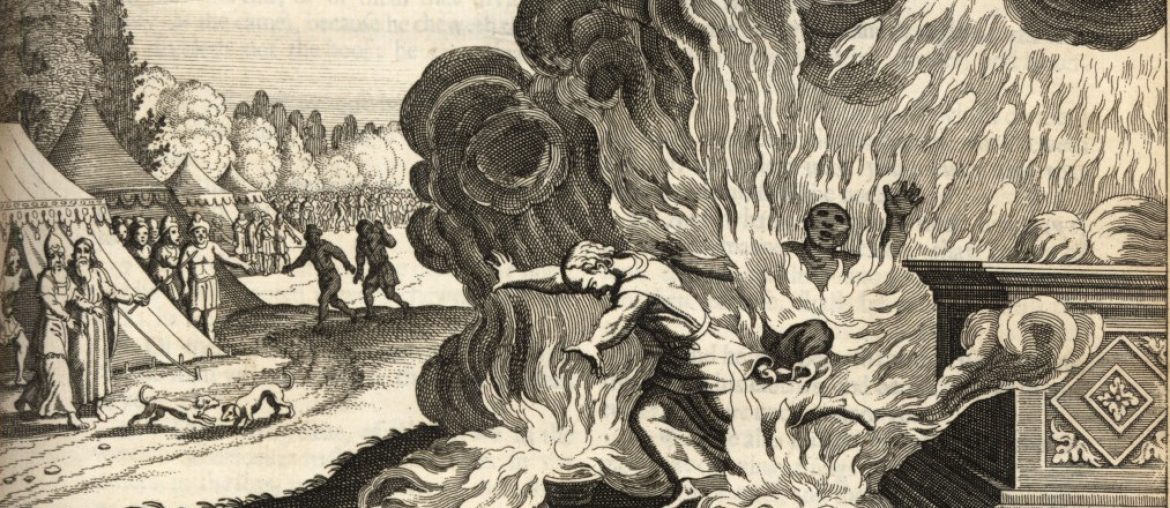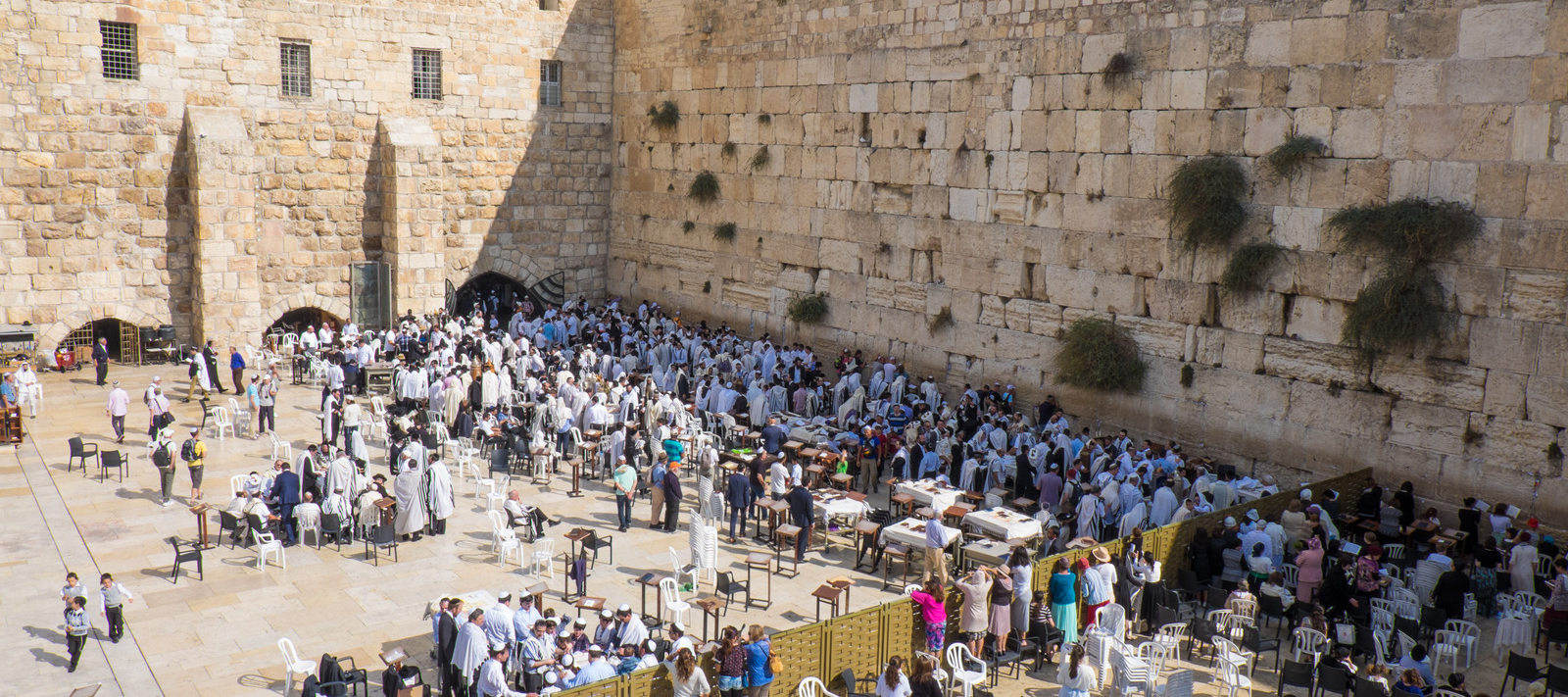Shemini ~ Leviticus 9:1-11:47
The weekly Torah portion (Hebrew: פָּרָשַׁת הַשָּׁבוּעַ Parashat ha-Shavua, popularly just parasha) is a section of the Torah read publicly and aloud in weekly Jewish prayer services, usually in full during the Shabbat (Saturday, the Jewish Sabbath). There are 54 such parashiyot in Judaism, and the full cycle is read over the course of a Jewish year. Each week, the ECI Young Adults are providing us with a commentary on the week’s parasha.
The Parashat of this week is about the conduct of holy sacrifices and the laws of eating food, as instructed in the Book of Leviticus. The original 5 sections are explained in this exploratory summary split in 3 parts. Both as persons and nations we can learn much from G-d’s careful instructions and detailed commands. Very strict laws (Kashrut or ‘Kosher’) regarding food and hygiene with very specific guidelines are given here to the people of Israel. Although Jesus indeed fulfilled such laws by His sacrifice and atonement, we as nations can still keep these statutes as sources of inspiration for G-d’s great commitment towards Israel.
The Priestly Ministry Begins & The Profane Fire of Nadab and Abihu
This section explains instructions for the Holy sacrifices, where blood is emphasized as the means for atonement. Why does an animal need to die for our sins we might wonder? Think about Jesus the lamb. Whereas animals had to be sacrificed over and over again because our sins are never ending, Jesus had power, glory and destiny to be sacrificed once and for all in order to set us

free for the rest of our lives. Interestingly enough, there came ‘fire from the lord that consumes it’ as a token of acceptance. However, the profane offering of Nadab and Abihu, the sons of Aaron, was done without command of the LORD and was therefore not accepted; so fire went out and devoured them instead. Imagine father Aaron’s tragedy.
Conduct Prescribed for Priests
Consequently, Moses then says to Aaron, “This is what the LORD spoke, saying: ‘By those who come near Me I must be regarded as holy; and before all the people I must be glorified.’ So Aaron held his peace”…
Furthermore, no wine or ‘intoxicating drink’ was allowed for Aaron or his sons before going into the tabernacle, or else they would die as well. The purpose of these rules is not merely to punish His people, but rather to teach ritual purity and to “distinguish between holy and unholy, between unclean and clean.” However, on the contrary, they were commanded to eat the remains of the grain offering and certain parts of the meat made by fire to the LORD because it is ‘most holy’. The LORD makes very clear and explicit that which is holy and unholy, clean and unclean; setting the boundaries for His people to live… and die.
Foods Permitted and Forbidden & Unclean Animals
The Israelites were allowed to eat animals with cloven hooves and ruminant animals, which re-chew their cud. However, very specific animals were forbidden: the camel, the rock hyrax, the hare, because although they chew the cud but don’t have cloven

hooves; and the swine because it has cloven hooves but does not chew the cud. These animals have been deemed unclean by the LORD. Furthermore, only animals in the sea with fins and scales. Specific birds are even regarded to be an abomination: the eagle, the vulture, the buzzard, the kite, falcon, raven, ostrich, short-eared owl, seagull, hawk, little owl, fisher owl, screech owl, white owl, jackdaw, carrion vulture, the stork, hoopoe and the bat, as well as flying insects with four feet and the list goes on and on. Amazing how the LORD G-d singles out very specific animals in great detail.
When reading or hearing about this, you might wonder what the ‘arguments’ or ‘reasons’ behind these statutes might be, as it sounds like a parent forbidding his/her adolescent child ‘just because…’. Verses 46-47: “This is the law of the animals and the birds and every living creature that moves in the waters, and of every creature that creeps on the earth, to distinguish between the unclean and the clean, and between the animal that may be eaten and the animal that may not be eaten.’” As G-d created everything Himself, why would He then make a distinction later between ‘clean’ and ‘unclean’ animals? Although we might struggle to discover the exact rationale why the LORD wants it to be like this, some modern scientific explanations claim that the whole idea of clean vs. unclean simply but brilliantly has to do with hygiene.
Conclusion and points for prayer
There is not just one definite ‘truth’, but this could very well be an indication of His protection of Israel. Whatever reason it might be, it becomes clear again from this Parashat portion that the LORD our G-d has a very sharp eye for details and provides careful instructions which demand obedience. Between the lines you’ll notice that He ultimately wants to protect His people of Israel as they are regarded to be Holy like Himself. Although they, as all humans, are sinners; we should realize the special position of His people. The sacrifices and laws of eating food provide us inspiration and guidance on how to life a balanced life. Especially in times of (religious) extremism, the Jewish way of life provides guidelines for the ‘middle way’. Let us therefore pray for holiness and purity for (the people of) Israel and our nations to pursue His way.
The European Coalition for Israel is a unique grassroots movement, which is seeking to promote better relations between Europe and Israel through advocacy and education. More information: http://www.ec4i.org



